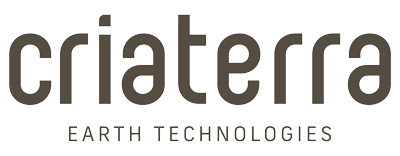C. Muslim Association, Imitiaz engages both Muslim and non-Muslim youth, and has made a platform for women within the community. But it isn’t just equity or acceptance that motivates him.Through his work, Imtiaz tries not only to make his community feel safe but also to answer the question: How can we instill understanding and tolerance in the wider world?
Uh, in Surrey, which is just 15 minutes away from me, has the largest influx of Indo-Canadians, uh, of Sikh origin other than India
Now that the community is made, those mosques are becoming empty. Why? Because the younger generation is not having a connection between the, between our organization and our elders. So we, me myself thought, how can we change that? How can we do something where children and youth want to do something and be happy of who they are? They don’t have to choose one or the other, being global citizens or being Muslims, or being any part of ethnic – they shouldn’t have to choose. So we started, uh, sporting programs where we would integrate a little bit of religion and more sports. So whereas we would have, um, one thing is that we had a, what’s called a, a, a Young Ummah BCMA, which is the organization that’s subsidiary of BCMA.
Uh, and it’s been around for about 12 years. It’s operated fully, and we’re a nonprofit organization that runs solely on, uh, donations. So this group of young individuals and myself at the helm thought on how different ways that we can engage our youth – Muslim and non-Muslim, because at that time coming back 2010, 2011, 2012, there was a big, uh, big influx of hate crimes. And there was a big influx of Islamophobia, even within Vancouver, where I live, where there are predominantly Indo-Canadians here. So now that can give you a grasp of how diverse this area was. And at the same time we were having hate crimes here.
And you hear this in bigger, bigger parts of, uh, you know, Canada, Eastern part Toronto, Ontario, but not on, around here in these Western parts. And that really startled us as, uh, young leaders. And that really startled us as, um, individuals. So we started to say, “Hey, let’s give these attainable goals and to create a basis of understanding between each other.” So the first program, some of the programs that we did, because forgive me, we have over 15, 10, about 10 years worth of programming.
People, women, young, uh, women as early as 17 or 18 were scared to go on the bus or the sky train because they used to have their hijabs pulled
But to start off, e thought sisters are the number one, um, targets, uh, as victims of his Islamophobia. Why? Because if you look at me right now, you can’t tell I’m a Muslim, but you can tell a woman she’s a Muslim by her hijab.
we created, um, a self defense program, um, organized and instituted by certified trainers and to. It was over a six week program where we taught them how to feel safe in their surroundings, understand their surroundings at the same time protect themselves. And I thought it was gonna be a big flock. Why? Because we have a lot of, um, families that are from predominantly, uh, uh, Asia, Asia, where Pakistan, India, Arab countries, um, and we thought that because, you know, not trying hop over to this web site to take away, buta lot of these families are very conservative when it comes to interaction, uh, between men and women and it’s, it’s, it’s perfectly understandable, but we want it to break that barrier that, “Hey, you know what? Our tolerance comes from here. It doesn’t come from our eyes and our head, it comes from our heart.”


